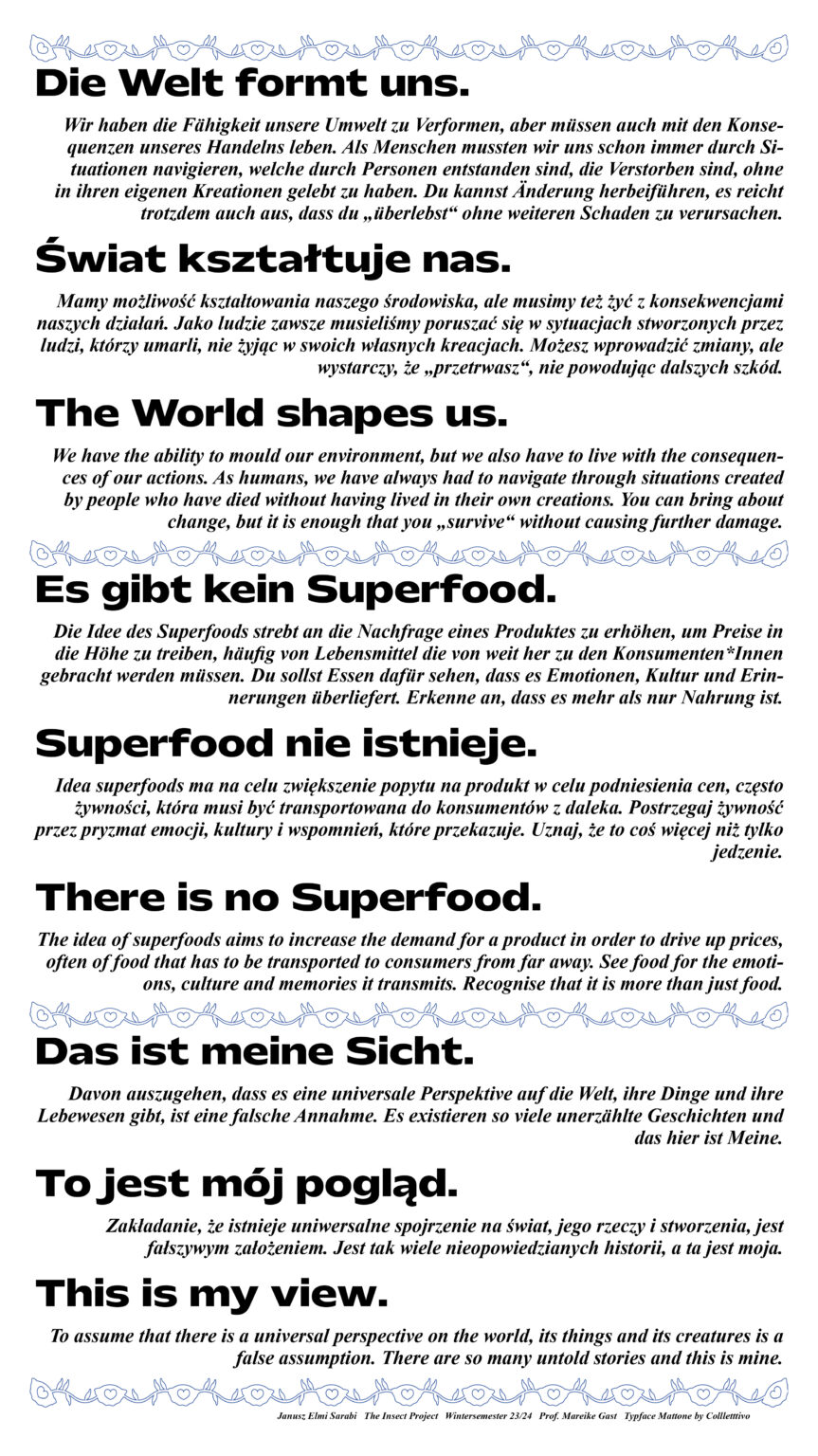Dumpling Workshop
dumplings filled with insects as new home cookery
In Europe’s food, insects have mainly been present in the form of energy bars, burgers or as a superfood. But how could they find their way into traditional home cooking? To explore this question, I have developed a workshop that travels through various regions of Europe and focuses on dumplings. Dumplings are found in almost all cultures and come in a wide range of variations and fillings. The workshop brings together people from different backgrounds and lifestyles to vary the regional dumplings with insects. This will result in new recipes that could enrich the regional dumpling culture with sustainable sources of protein.
| student: | Janusz Elmi Sarabi |
| project: | The Insect Project – Resilience Part I |
| year: | 2023/24 |
We love eating dumplings and making them. Why don’t we extend this love to insects? And fill our dumplings with delicious insect-based fillings.
This travelling workshop will combine these two very different and at the same time very similar foods. Participants will be introduced to the world of dumplings and given the chance to design and try a wide variety of fillings themselves. By creating a pleasant atmosphere, participants are invited to let go of their preconceptions and experiment freely with shapes and fillings.
The dumpling workshop is intended to integrate itself into the local culture, by which the language of the workshop infrastructure changes with each relocation. The tile motifs are also unique from city to city and are created in collaboration with local ceramic artists. The approx. 12 participants are made up of 4 to 6 fixed places for local chefs, ceramic artists, restaurant owners and insect breeders. A further 8 or so places are open to all interested people who would like to take part in the workshop.
The aim is to leave participants with an experience and inspiration to pass on, as well as an open, constantly growing recipe book. The participants fill out forms in which they document their favourite filling, favourite shape and a dumpling, which are then scanned and published in a blog. They can then be viewed there by all interested parties, participants and future participants.
As this is all very time-consuming, the workshop takes place in the third week of each month. There are 24 stations all over Europe, so the workshop runs for 24 months.

